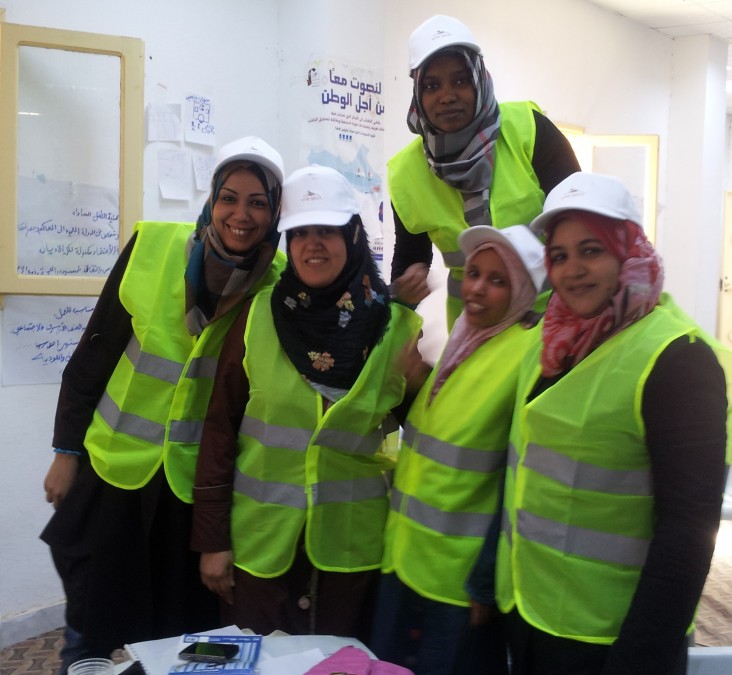
September 2013—Less than a year after their country's liberation, nearly 2 million Libyans participated in the country’s first free elections in over 40 years on July 7, 2012. Voters of all ages celebrated the event, showing off their electoral stain, which quickly became known as “patriotic henna."
While the road to electing a General National Congress was relatively smooth, the upcoming step of forming a commission to draft a new constitution is an impending challenge in the transition.
To add to its many struggles, the Libyan Government is faced with the challenge of balancing the political power among the many groups that participated in the revolution and/or that have been marginalized in the former or current political systems. Raising awareness on the constitution-drafting process, including the right to participate, is essential to the commission’s formation and the ultimate legitimacy of the constitution itself.
Government entities, civil society and media outlets want their voices to be heard in Libya’s transition. USAID, through its Office of Transition Initiatives, is rapidly responding by providing support for workshops, information awareness campaigns and other outreach activities that address key issues in the lead-up to the constitutional referendum. USAID has also provided technical assistance to help civil society engage in debate. During the process, the Agency has continuously engaged with government officials, civil society leaders, public sector workers, former revolutionaries and citizens across the country.
Support has included empowering civil society to conduct the outreach and information dissemination activities in their own communities. For example, civil society groups in remote southern towns like Murzuq, Awbar, and Ghat received training on how to conduct small-group community discussions on the constitution and other transition-related topics such as human rights, governance, state structures, and women’s and minority rights.
Since June 2011, a total of 12 activities were conducted in approximately 20 districts across the country, training women and men on basic constitutional principles. Nearly 9,000 information products on constitution and human rights have been distributed as part of these activities.
Following the workshops, public dialogues were held in Bani Walid and Sabha, two towns that have felt most disconnected from the country’s transition processes.







Comment
Make a general inquiry or suggest an improvement.